Poststructuralist Theory and Its Practical Implications for Health and Well-being in Early Childhood Education
VerifiedAdded on 2023/06/07
|5
|798
|312
AI Summary
This article discusses the practical implications of poststructuralist theory for health and well-being in early childhood education. It highlights the role of early childhood teachers in promoting hygiene practices and encouraging healthy habits in young children. The article suggests creative ways to teach children about hygiene and sanitation, such as using visual arts and educational worksheets. The use of post-structuralist approaches helps early childhood educators explore different approaches towards embedding the practice of promotion of hygiene in children in their early years.
Contribute Materials
Your contribution can guide someone’s learning journey. Share your
documents today.
1 out of 5
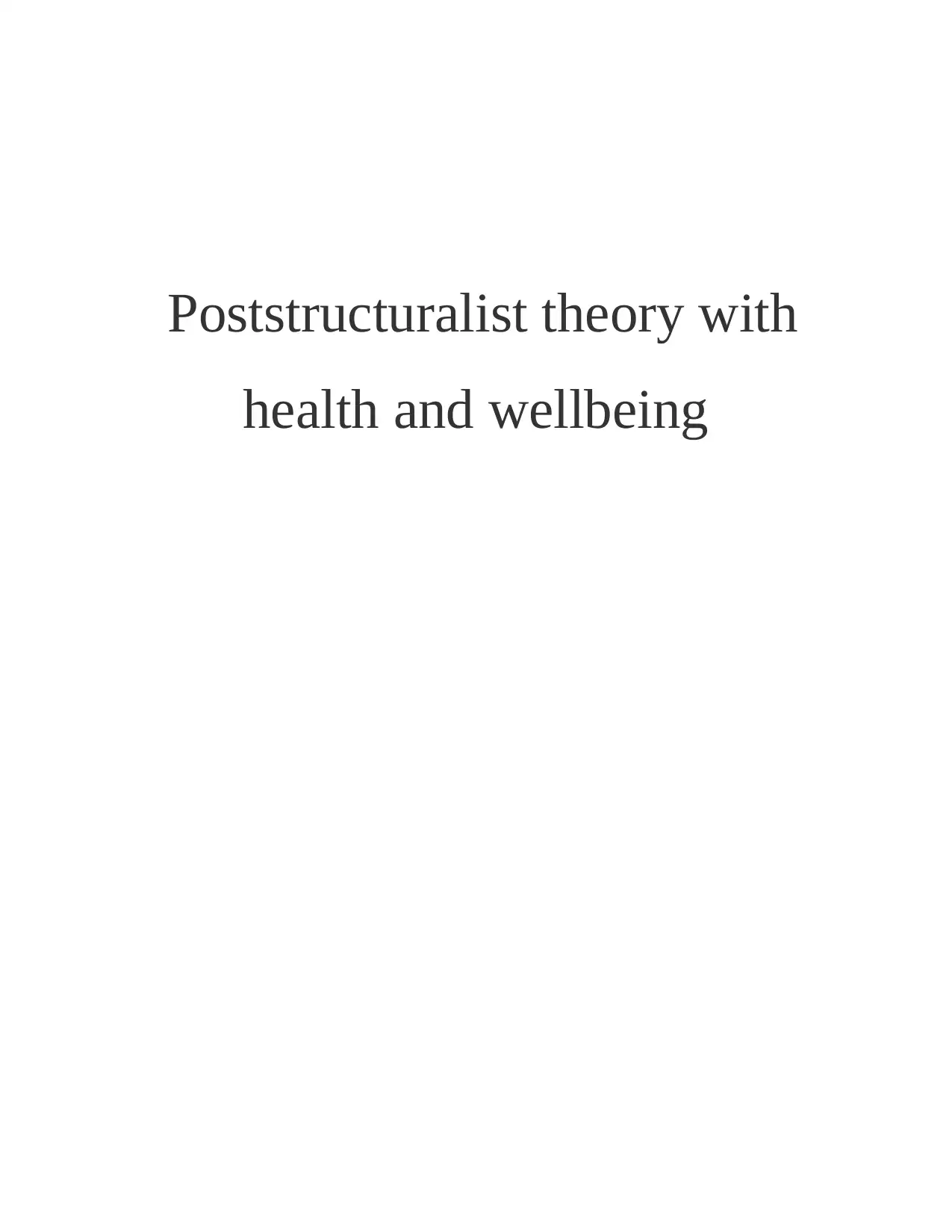
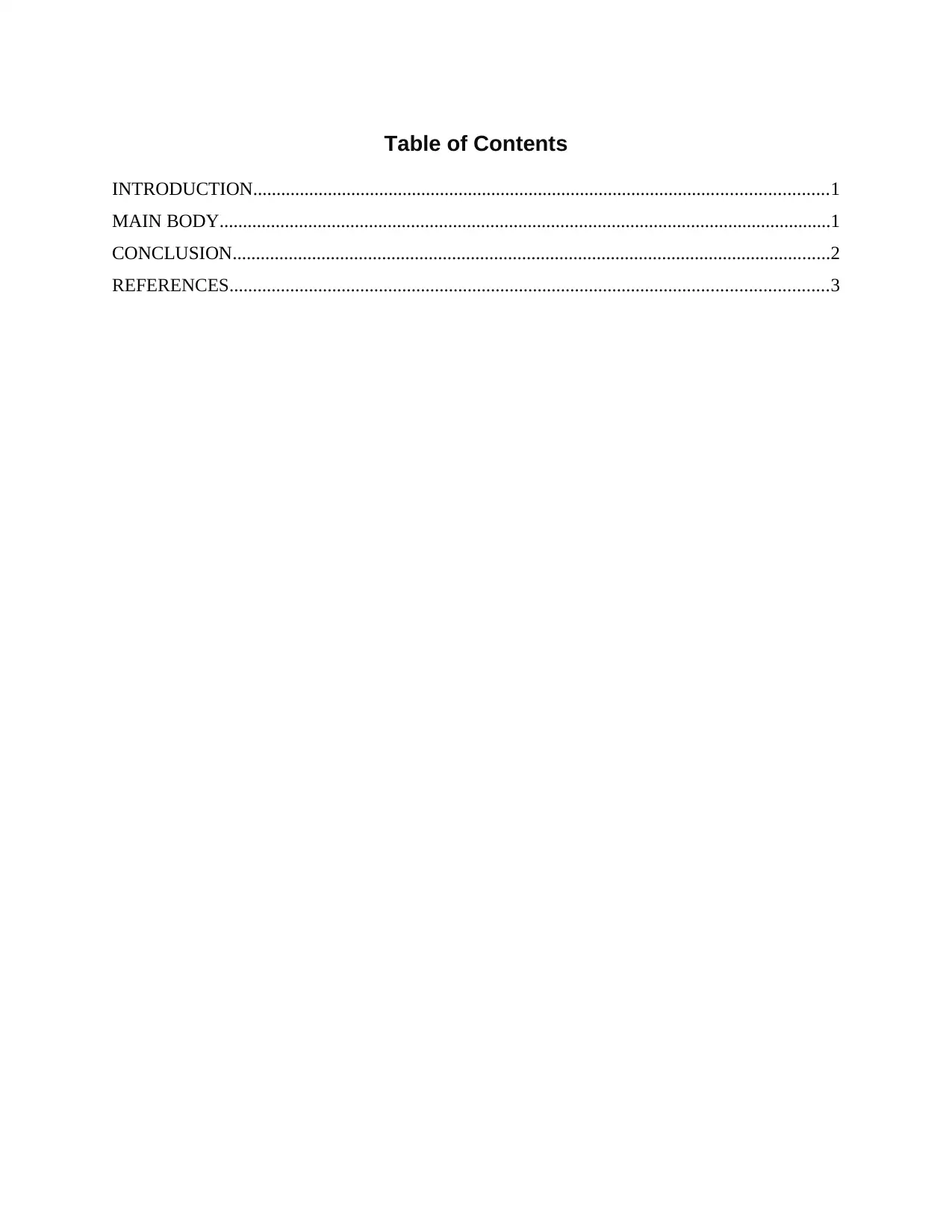
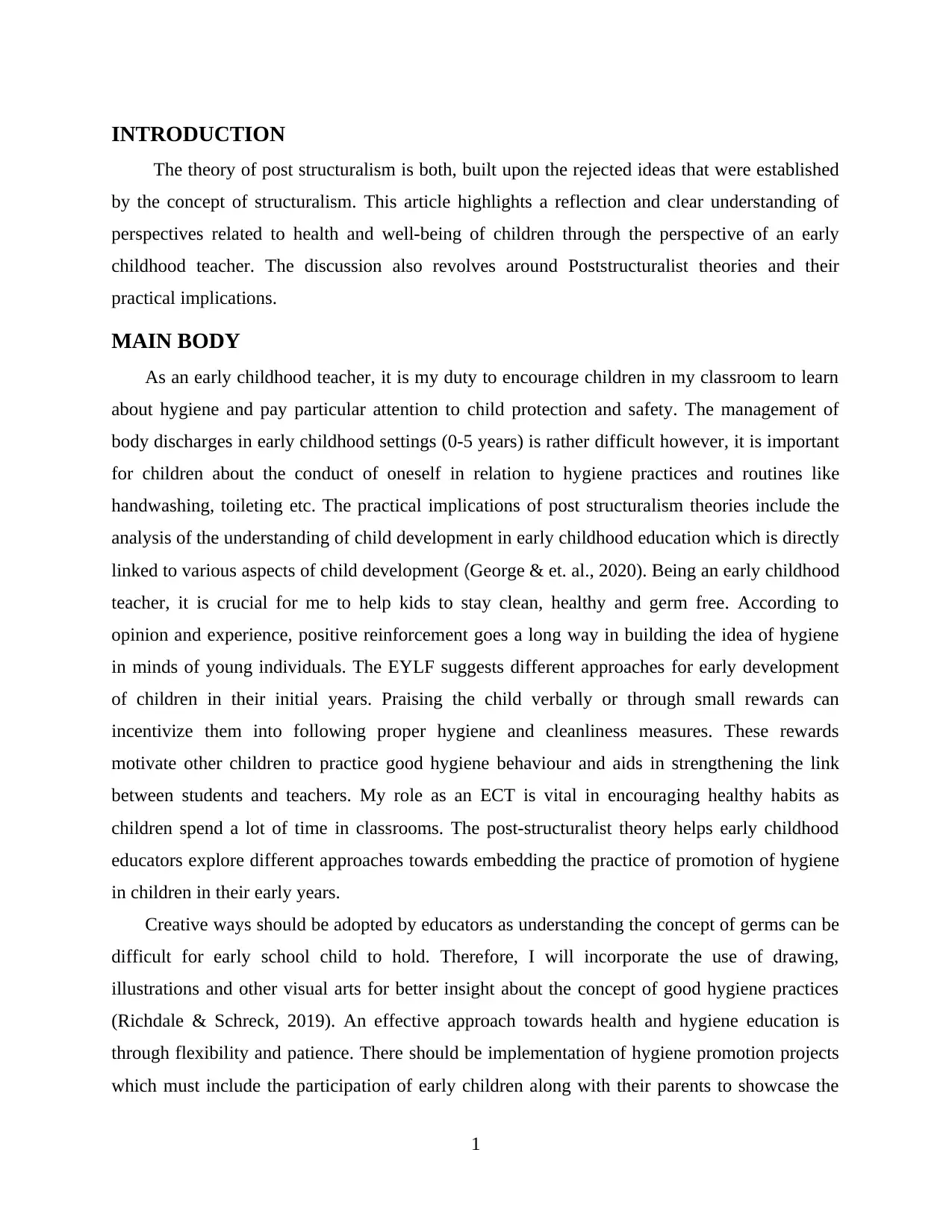
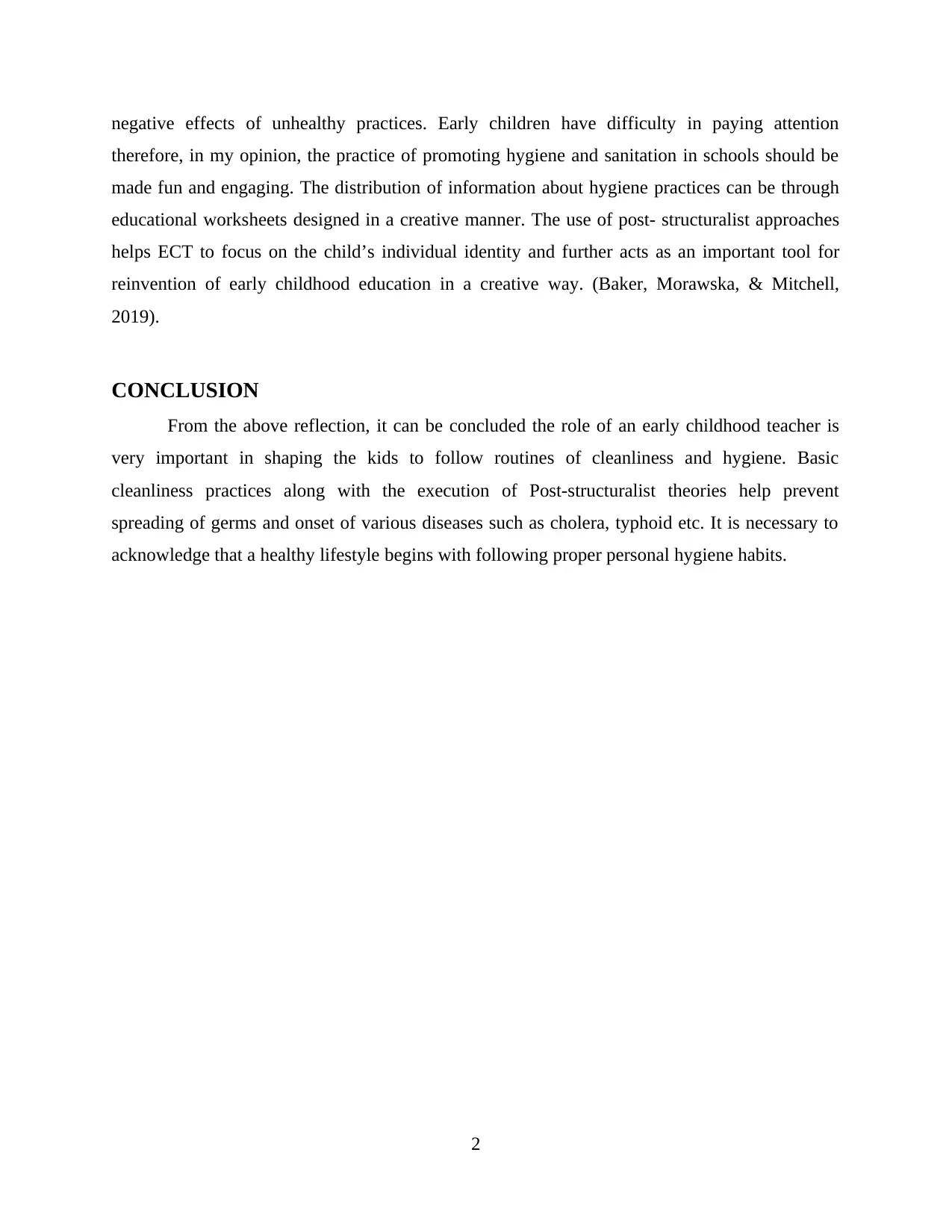
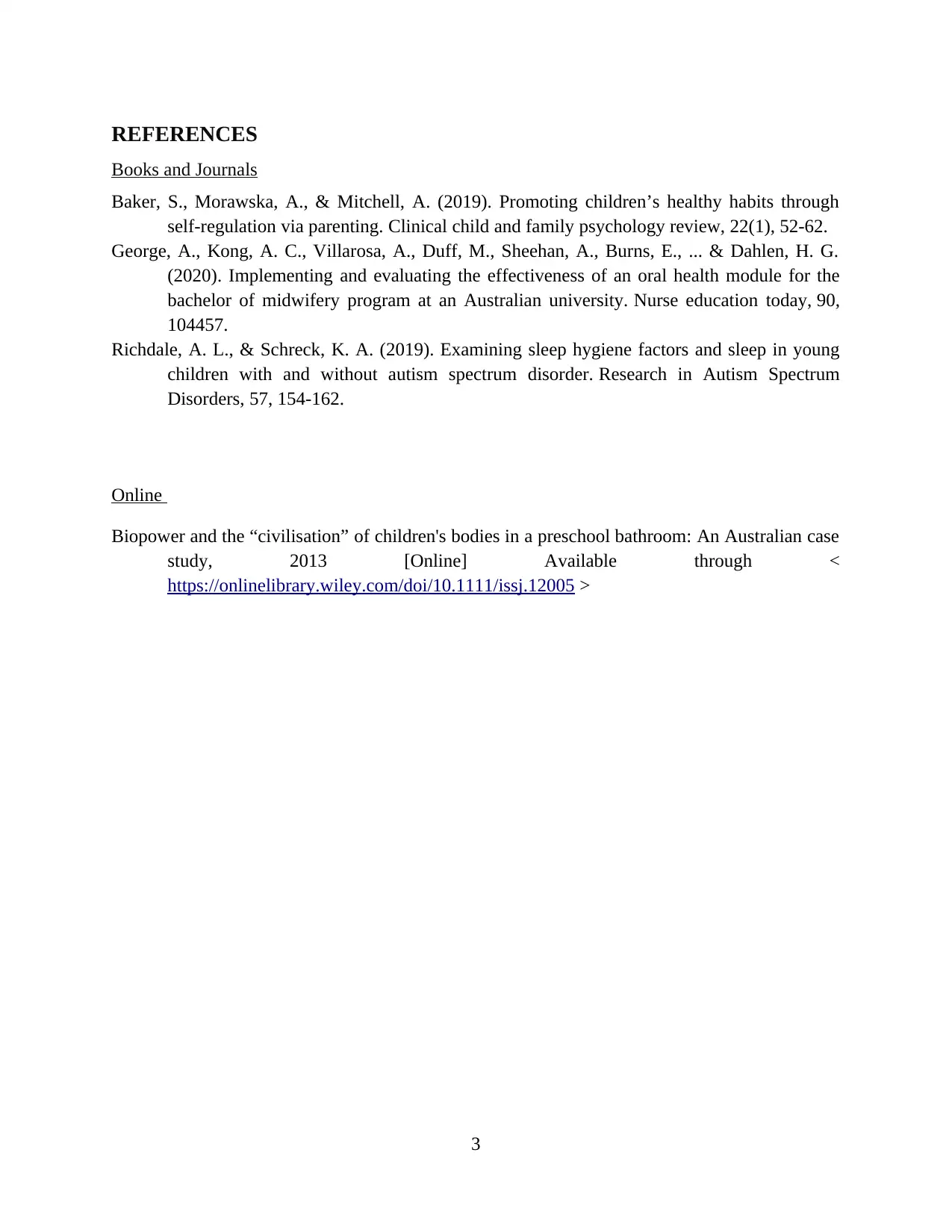






![[object Object]](/_next/static/media/star-bottom.7253800d.svg)